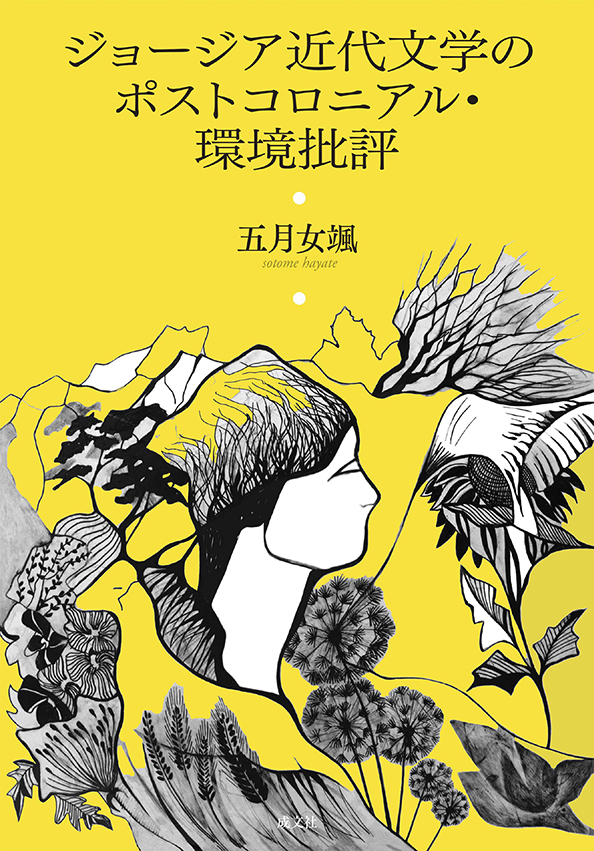
Title
Georgia Kindai Bungaku no Postcolonial Kankyo Hihyo (Postcolonial ecocriticism in modern Georgian literature)
Size
336 pages, A5 format, hardcover
Language
Japanese
Released
January, 2023
ISBN
978-4-86520-062-1
Published by
Seibunsha
Book Info
See Book Availability at Library
Japanese Page
Georgia has steadily been attracting attention in recent years. Yet how many people know precisely where Georgia even is?
Georgia is a country located to the south of Russia and facing the Black Sea. Consequently, it was colonized—though Georgians do not like to call it that—as the Russian Empire expanded southward in the early 19th century. It has been under Russian influence throughout Soviet times, and that influence has persisted following the dissolution of the USSR to the present day. This book discusses how late-19th-century Georgian authors and poets viewed and described their country’s relationship with Russia, given Russia’s imperialist and colonialist relationship to their country. In terms of literary studies, while prior research has mostly concerned Russian-language texts, this study focuses on Georgian-language texts in an attempt, rooted in postcolonial concerns, to find “the gaze back from the ruled.”
The first part of this book analyzes the works, and in particular the early works, of intellectual Ilia Chavchavadze (1837–1907), also known as “the Father of Georgia.” He was of the first generation of young Georgians who went to study abroad in Russia, and he wrote a travelogue, called Letters of a Traveler (1861–71), recounting his return after completing his studies. In Letters, he tears apart the discourse about “enlightening the natives,” the ideology that the Russian Empire used to legitimize its colonial rule, by observing that Russia itself was not enlightened enough to do so compared to the West (or France, as he writes).
However, this is not to say that he adopted an anti-Enlightenment stance to oppose that discourse; rather, he thought of the Enlightenment (that is, modernity) as a means of liberation from Russian rule. In Is He A Human?! (1863), his novella from the same period, Chavchavadze satirized the life of Georgian aristocrats who never got an education and merely ate and slept, and he forcefully asserted the importance of education (viz. the Enlightenment). This strategy of reversing, in a sense, the ruler’s discourse can arguably be interpreted as an example of “mimicry,” as discussed by post-colonialist theorist Homi K. Bhabha.
However, this opposition discourse, too, is problematic. That is, a discourse that emphasizes the Enlightenment and modernity in this way creates another class structure in which people are differentiated from others by how enlightened (or not) they are. This attitude is adjacent to Eurocentrism and ethnocentrism, which postcolonialism also criticizes.
Given this framing of the problem, the second part of the book advances a discussion of the epic poem The Snake Eater (1901) by Vazha-Pshavela (1861–1915), a poet and contemporary of Chavchavadze’s, from the perspectives of ecocriticism and zoocriticism, which are relatively new theories in literary studies that have become popular in recent years. In The Snake Eater, the protagonist attempts suicide by eating a snake, but instead of dying, he gains the ability to understand the language of nature. How does that connect to the problem mentioned above? Well, I have reached my word limit, so please read the book and see for yourself.
(Written by: SOTOME Hayate / March 03, 2023)
Related Info
The 3rd UTokyo Jiritsu Award for Early Career Academics (The University of Tokyo 2022)
https://www.u-tokyo.ac.jp/ja/research/systems-data/n03_kankojosei.html



